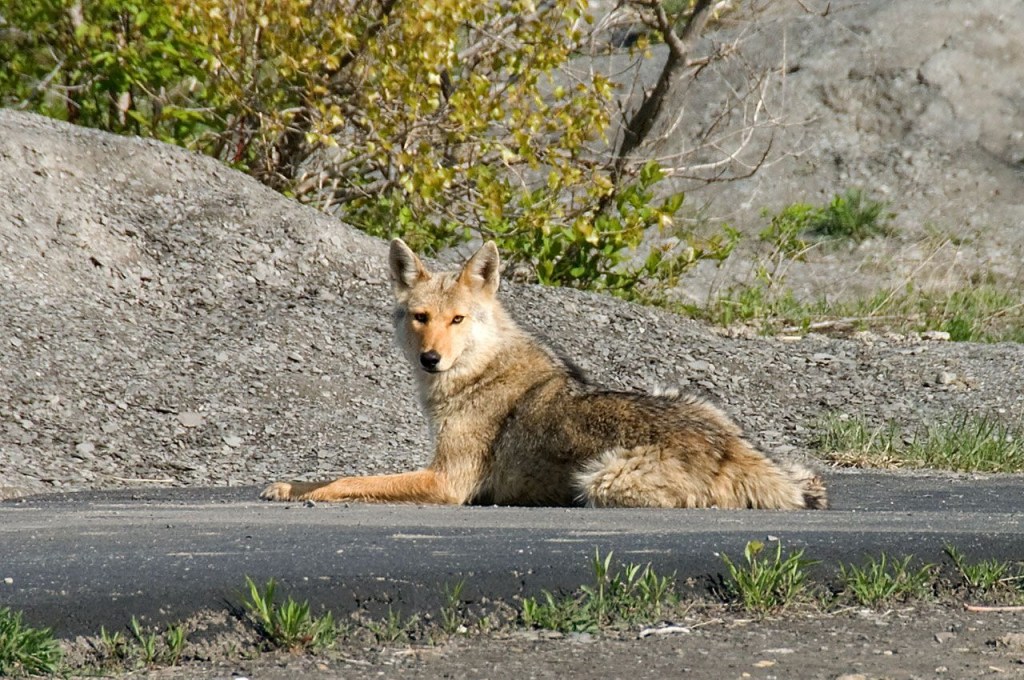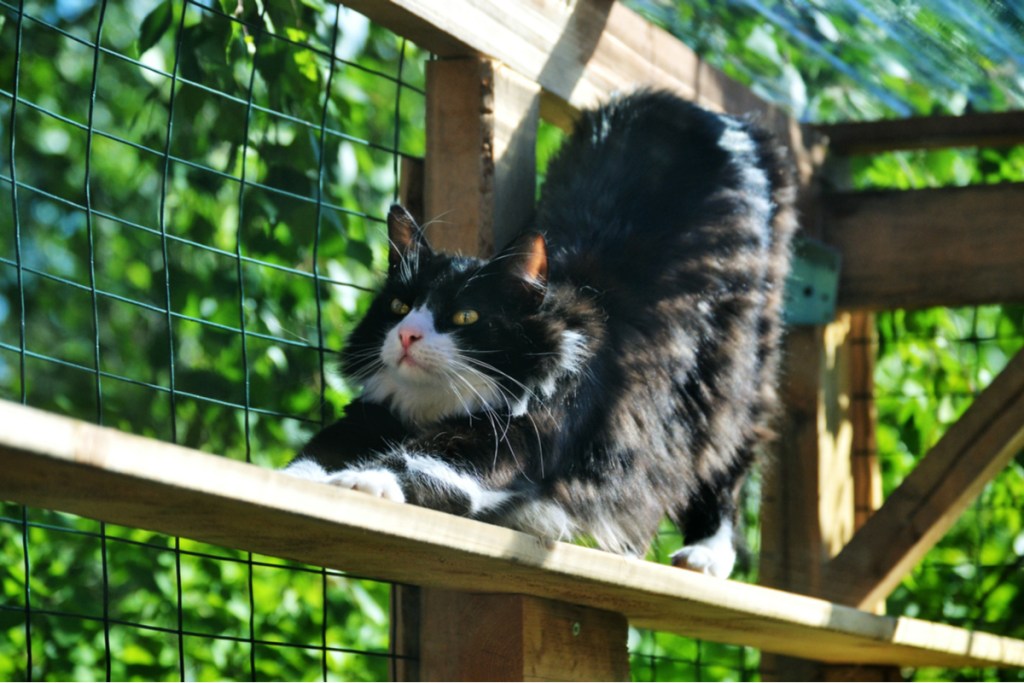If your cat spends time outdoors, then coyotes may be a concern. Depending on your location, coyotes can be a major threat to your cat’s safety. If you’re deciding whether you should let your cat go outdoors, then it’s a good idea to familiarize yourself with the coyote presence in your community (but don’t forget that outdoor cats face other dangers, like cars, dogs, and even poisons). It can be difficult to fully protect your cat from coyotes, but there are some steps that you can take to reduce the risk of an attack. Make sure that you understand how to keep coyotes away from cats before you decide to let your cat outdoors.
Can cats get away from coyotes?
According to the Christian Science Monitor, cats can easily become prey for coyotes. While coyotes often eat rabbits, birds, mice, and even lizards, many won’t hesitate to make a cat their next meal. A study of the coyotes living in Tucson, Arizona, found that cats made up a surprising 42% of the coyotes’ diets. The study also found that cats were killed in more than half of the confrontations that occurred between coyotes and cats.
Nite Guard explains that once a coyote has caught a cat, the cat stands little chance of escaping. Coyotes can run up to 40 miles per hour, and cats can’t outrun them.

Can a cat hurt a coyote?
Cats don’t have many defenses when it comes to fending off a coyote. According to Nite Guard, since pet cats are usually tame, they’re easy prey for coyotes.

How do I protect outdoor cats from coyotes?
According to Nite Guard, there are several ways to protect your cat from coyotes. Many of those strategies focus on making your yard less appealing to coyotes, but keep in mind this will only be effective if your cat stays in your yard.
Secure your yard
- To start, don’t leave cat food outside. If you do feed your cat outdoors, pick up any leftovers right away. Store garbage in secured structures, like a shed, and avoid having other sources of food, like birdfeeders, on your property.
- Use fencing. Depending on your yard, you might be able to fence the yard in to keep coyotes out. You’ll need a fence that’s at least six feet high, and you’ll also need to make sure that there are no areas where your cat could escape.
- You might consider installing cat posts, which would give your cat a place to climb and escape a coyote if he were to be attacked. While cats can climb them, coyotes can’t. The post needs to be at least 10 feet above the ground. Remember, coyotes are fast, so a cat post may or may not be helpful during an attack. It will depend on if the cat is fast enough to reach the post before the coyote can catch him.
- Coyote repellent lights may also help to discourage coyotes from coming onto your property. Automated LED lights may look like predators to coyotes, making your yard seem like a threatening place to avoid. You can also chase coyotes off by making loud noises, which may discourage them from returning to your yard.
Keep your cat indoors
The Humane Society of the United States notes that the only way to truly ensure your cat is safe is to keep him indoors. Remember that coyotes aren’t the only threat; your cat could also be harmed or killed by a car, poison, and even cruel people. While these coyote prevention strategies might reduce the risk of your cat being attacked, they can’t eliminate that possibility. Keeping your cat indoors can help him live a healthier and longer life. It will also give you peace of mind knowing that your cat is safe from all predators, not just coyotes.
If you’re on the fence about whether to keep your cat indoors, realize that there are many ways to give your indoor-only cat an engaging and happy life. You can provide your cat with toys, cozy spots to sleep, and plenty of cat trees to satisfy his natural need to climb and scratch. Playing with your cat daily helps to satisfy his hunting instincts and prevent boredom. Plus, with a catio, you can give your cat a taste of the outdoors safely while ensuring he’s protected from predator attacks. You can even teach your cat to walk on a harness and leash so that you’re right there with him and are able to supervise his outdoor time and keep him safe.
Coyotes are a very real threat to cats, and depending on where you live, your cat might be at a high risk of being attacked. It’s important to weigh the risks that you’ll be taking on if you let your cat outdoors and to take proper precautions to keep your furry friend safe.
Editors' Recommendations
- Wondering why cats chirp? Fascinating reasons why your cat chirps at birds (and you)
- How to cat-proof your balcony before the unthinkable happens
- There’s a totally normal reason cats throw up after eating grass – here’s why
- When can kittens leave their mom? Don’t separate them too early
- When do kittens’ eyes change colors? The answer is so cool – here’s what to know



